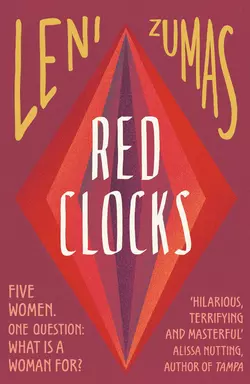Red Clocks

Leni Zumas
Тип: электронная книга
Жанр: Современная зарубежная литература
Язык: на английском языке
Стоимость: 774.44 ₽
Статус: В продаже
Издательство: HarperCollins
Дата публикации: 16.04.2024
Отзывы: Пока нет Добавить отзыв
О книге: ‘Intense, beautifully crafted . . . Her talent is electric. Get ready for a shock’ GuardianThis is a work of fiction. Keep telling yourself that.America has changed. For women, it has changed for the worse.Ro, a single high-school teacher, is desperate to become a mother. But with IVF now illegal – along with abortion and other reproductive rights – parenthood looks increasingly unlikely for her. Her best friend Susan is trapped in a failing marriage with two children, her star student Mattie is unwillingly pregnant and Gin, an outcast offering other women natural remedies, has become the centre of a modern-day witch-hunt.With warmth, wit and ferocious inventiveness, Red Clocks shows us an all-too plausible near-future: like The Handmaid’s Tale, it is a call to arms, set to become a modern classic.